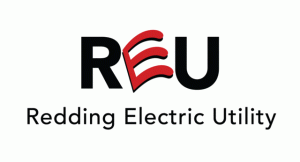Appellate court pulls plug on utility charge
 Taxes are taxes – even when collected by a city on a municipal service. That’s the recent ruling by California’s 3rd District Court of Appeal enforcing two tax-limitation initiatives, Propositions 13 and 26.
Taxes are taxes – even when collected by a city on a municipal service. That’s the recent ruling by California’s 3rd District Court of Appeal enforcing two tax-limitation initiatives, Propositions 13 and 26.
The action threatens a source of revenue for cities that use what’s called “payment in lieu of taxes,” or PILOT. A municipal utility does not pay property taxes (unlike investor-owned utilities such as Southern California Edison). In some cities, the utility instead pays a PILOT, passing the expense on to ratepayers.
In Jan. 2011, Redding adopted an electric-rate increase for juice from the city-owned Redding Electric Utility that included a PILOT. The amount transferred from the Electric Utility Fund to the city General Fund was roughly equivalent to what an investor-owned utility would have to pay in property taxes, about 1 percent of assessed value.
This is a longstanding practice of California cities. They effectively overcharge ratepayers for the PILOT payment, then shift the money into the general operating fund for police, fire and other municipal services. Such practices are not a secret and allow cities to raise taxes with elected representation, but usually without voter approval.
Legal case
The new court ruling stems from a case involving the city-owned Redding Electric Utility, or REU, which was sued by the group Citizens for Fair REU Rates. The appeals court ruling overturned the decision of a lower Shasta County Superior Court case.
The citizens group challenged the PILOT as an unconstitutional tax not approved by voters.
Critical in the Redding case was that the PILOT was authorized as part of the city’s bi-annual budget, not by a municipal ordinance. That’s because a municipal ordinance authorizing a charge cannot by law charge more than the cost of service, in this case electricity.
So authorizing the shift in funds through the city budget was a way to overcharge for electricity to subsidize general municipal services.
Redding contended the PILOT was a grandfathered charge authorized before the adoption of Prop. 26 in Nov. 2010. And the city said the charge was an unintended surplus originally meant to cover the reasonable cost of providing electric service.
Prop. 26 was called the Stop Hidden Taxes initiative and required a two-thirds vote of the people to pass any new fees, levies or charges. The better known Prop. 13, passed in 1978, required a two-thirds vote of the people for any “special” property, sales and income taxes.
The appellate court ruled:
“We conclude the PILOT constitutes a tax under Proposition 26 for which Redding must secure a two-thirds voter approval unless it proves the amount collected is necessary to cover the reasonable costs to the city to provide electric service. We reject Redding’s assertion the PILOT is grandfathered-in by preceding Proposition 26’s adoption. As a budget line-item, the PILOT is subject to annual discretionary reauthorization by Redding’s city council. The PILOT does not escape the purview of Proposition 26 because it is a long-standing practice.”
The appellate court also referred the case back to the Superior Court to provide the city an opportunity to prove that its charge was a reasonable cost not exceeding the cost of service.
According to the Redding Record Searchlight, “Redding plans to ask the California Supreme Court to review an appellate court’s ruling that the city’s practice of using electric utility customer’s money to cover general fund expenses requires voter approval.”
Precedent
Roland Kedikian, an attorney with the Glendale Coalition for Better Government, told CalWatchdog.com the Redding case should set a favorable precedent for his group’s challenge of a similar PILOT practice by Glendale. The city runs Glendale Water & Power.
GCBG filed a lawsuit against Glendale in March 2014, contending that electricity cannot be a “piggy bank” to satisfy city budget shortfalls without voter approval.
Kedikian said Glendale’s practice of funding transfers was a violation of Prop. 26 because that city issued electric utility bonds to be paid back by higher utility rates. Then some of those bond monies were transferred for municipal services not related to electricity use.
Kedikian called such practices a “back door tax” that circumvents existing law. However, Kedikian made it clear his citizen group was not an anti-tax organization. He said such fund transfers deny citizens their constitutional right to have their voice heard through voting.
According to the Daily News, city officials have contended “transferring funds from Glendale Water & Power to the city’s general fund for police and other public services is the only way to maintain Glendale’s level of services.”
Related Articles
Soaring costs vex health care witnesses
The escalating cost of health care is making sick patients wait until they get sicker before receiving the medicine that would cure them.
Whitman's impenetrable bureaucracy
SEPT. 1, 2010 By ANTHONY PIGNATARO The Meg Whitman for Governor Campaign is like the Pentagon – or possibly even




